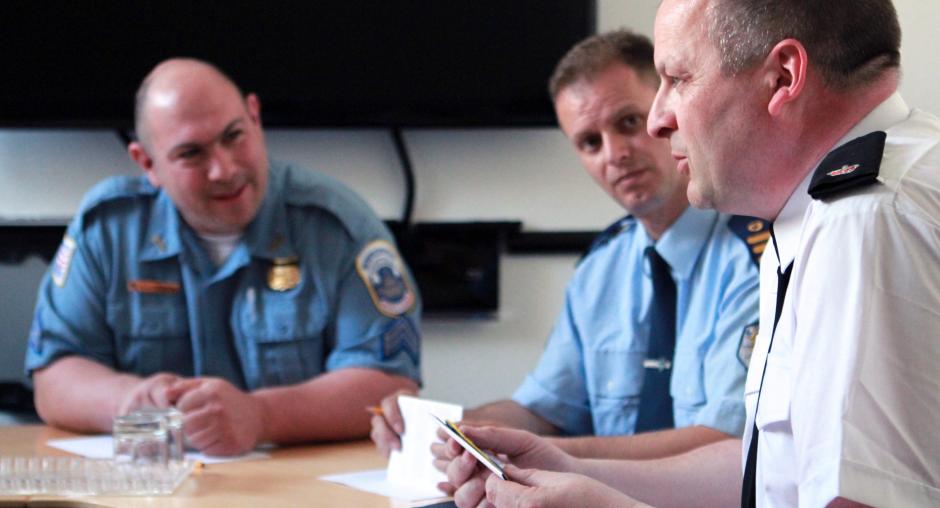OSCE human rights office launches new hate crimes training programme for law enforcement officers

VIENNA, 13 May 2011 – The OSCE Office for Democratic Institutions and Human Rights (ODIHR) today launched a new training programme aimed at building the capacity of law enforcement personnel in participating States to prevent and respond to hate crimes.
The programme, named Training against Hate Crimes for Law Enforcement, or TAHCLE, has been designed to assist OSCE participating States in implementing their commitment to combat hate and intolerance.
“If left unchecked, intolerance and hatred can have serious implications for society. We have seen in the recent past how conflicts instigated by acts of intolerance can degenerate into violence and the breakdown of the social and political order,” said Ambassador Janez Lenarčič, the Director of ODIHR, as he presented the programme to the OSCE’s participating States in Vienna.
Lenarčič stressed that law enforcement agencies have an important role to play in combating hate crimes: “Effective responses by law enforcement are essential to ensure that people retain confidence in the rule of law and feel the support of the state in responding to intolerance.”
He said that the training programme will enable law enforcement to better identify and respond to hate-motivated crimes.
The programme builds on pilot training held in several participating States since 2005 and focuses on training police educators; strengthening collaboration between law enforcement agencies, prosecutors, judges and civil society; and developing effective hate crime data collection and dissemination processes.
The programme envisages the active engagement of victim groups and civil society to highlight the impact of hate crimes on different communities and the importance of building confidence and partnerships between the police and communities. It also addresses new challenges, such as hate on the Internet.
ODIHR publishes an annual report on hate crimes in the OSCE region and assists participating States in combating such crimes through a wide range of programmes.
